
How to pack for cycle touring
How to pack for cycle touring
Are you planning your next big day out in the saddle? Maybe you’re thinking bigger and heading off on a multi-day tour by bike. You’ll want to be as sure about the kit you’re taking along with you as you are about the route you have all mapped out.
Wisely choosing your touring kit is one of the most important parts of preparing for a cycling adventure. Don’t forget, you will be carrying whatever it is you’ve decided to pack. The most prudent ‘bike packer’ is the one who has lightweight essentials and doesn’t carry anything they don’t need.
We have put together a list of must haves to help you prepare for your own cycle tour.
1. Water, water, everywhere
Water has got to be your number one essential. You can’t assume that the shops will be open, or indeed that you’ll be anywhere near one when you need that thirst-quenching glug. So mount bottle cages on your downtube and seat tube and take plenty of water. Whenever you get the chance to top up those bottles, do so.
2. Food for fuel
Top of your kit bag needs has to be food because there’s nothing worse than experiencing the dreaded ‘bonk’ (when your body runs low on glycogen which makes you stop in your tracks).
3. Padded shorts
This almost doesn’t need explaining, does it? If you’re going to spend hours in the saddle enjoying the fantastic scenery, you don’t want to be distracted by an uncomfortable derrière.
4. Pump, puncture repair kit
Make sure you’ve at least got a pump, a multi-tool with a decent chain tool (or chainbreaker), puncture patches and glue and tyre levers
5. Spare inner tubes
Because pushing your bike home or onto the next place to stay with a puncture is never fun. Don’t just rely on patching up your inner tube – you might need to swap it over.
6. Rain jacket
Whether it’s an off-road ride in Wales, or an on-road tour through Tuscany, no matter where you are heading in the world, if you’re outdoors, you can get wet – so be prepared with a lightweight, waterproof jacket
7. Phone
We know it’s obvious, and for so many of us now, we wouldn’t dream of going anywhere without it – but having a phone is a must in case of emergencies or to alter your accommodation arrangements en route because of unexpected delays. Also for those with a smartphone, the GPS mapping and tracking software apps can be a help if you’re not accustomed to map reading.
8. A map
Not only because Ordnance Survey is great, but because exploring brings us the greatest of discoveries. It’s nice to have the means to consider adding to (or taking away from) your original route as you go along on your trip.
9. First aid kit
And just as importantly, a decent knowledge of how to use it – just in case.
10. Cash as well as cards
The social side of cycling gives you’re the chance to shoot the breeze over a pint or a cuppa and a piece of cake, plus cycling brings huge benefits to the rural economy. There are still times, though, when you’re not going to be able to use your bank card and cash is still king.
11. Dry bags or bin liners
If your panniers aren’t entirely waterproof, a dry bag or some bin liners to protect your change of clothes will help you to avoid putting on damp clobber the next day.






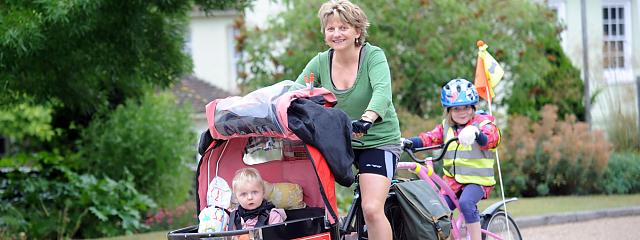
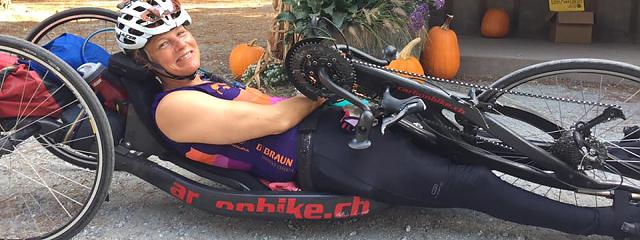
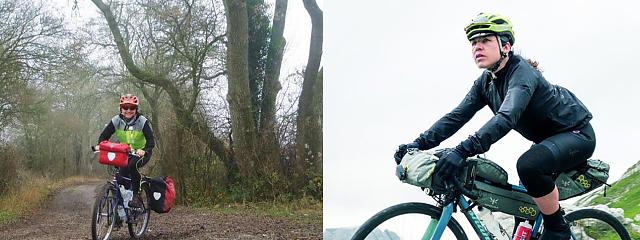
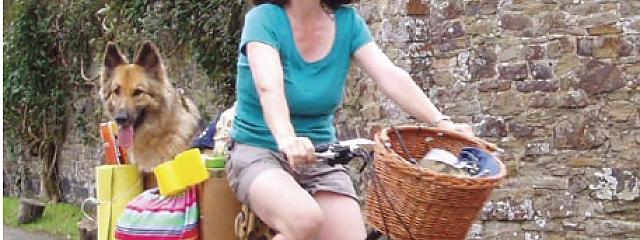
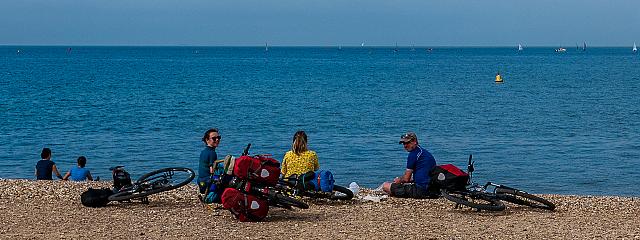

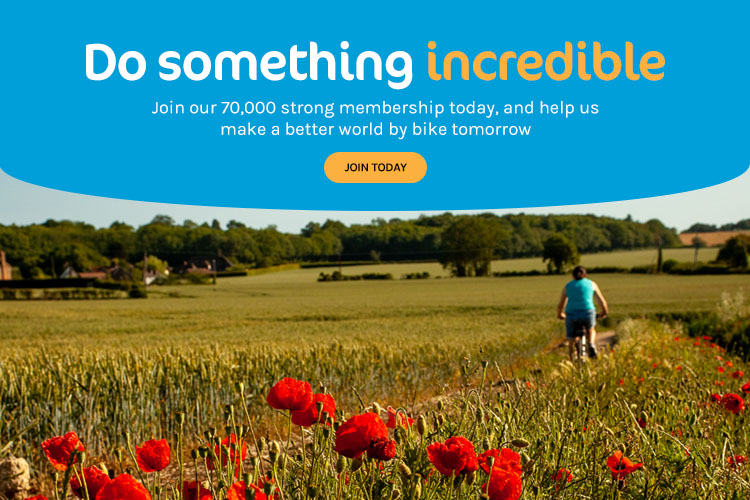

Comments
Essential Items For Touring
After punctures, the next most common roadside repairable failures are gear cables and chains. I always carry a spare gear cable and a brake cable (if the bike is not equipped with hydraulic brakes). A short length of chain, just a few links (e.g. those removed when fitting a new chain) and a couple of magic links can be used to repair a badly damaged chain. A multi-tool, or loose tool kit, including a chain breaker tool is essential for touring. I also carry a spare derailleur hanger as these are cheap, light and and easy to fit. Even if you don't have the correct tools to fit it, they will be easier to borrow from a garage or motorist than obtaining a replacement hanger in a reasonable time-scale, especially if you break one somewhere remote from large cycle shops. A spoke key is useful for roadside straightening of a (not too badly) buckled wheel, and a few spare spokes, at least one of each length used on the bike, take up little space. Finally, it's amazing the temporary repairs that can be effected with a small selection of zip ties and some electrician's tape.
You don't mention lights - even if it's not intended to be riding after dark delays can, and will, happen, and I would say that carrying some form of emergency lighting is essential for touring.
Friends and I have ridden significant unsupported tours on each of the last three years, LEJOG, Scottish Highlands and Ireland. Apart from a terminally broken rear hub, we've been able to cope with all other technical issues that have arisen using the kit described above.
Essential Items For Touring
After punctures, the next most common roadside repairable failures are gear cables and chains. I always carry a spare gear cable and a brake cable (if the bike is not equipped with hydraulic brakes). A short length of chain, just a few links (e.g. those removed when fitting a new chain) and a couple of magic links can be used to repair a badly damaged chain. A multi-tool, or loose tool kit, including a chain breaker tool is essential for touring. I also carry a spare derailleur hanger as these are cheap, light and and easy to fit. Even if you don't have the correct tools to fit it, they will be easier to borrow from a garage or motorist than obtaining a replacement hanger in a reasonable time-scale, especially if you break one somewhere remote from large cycle shops. A spoke key is useful for roadside straightening of a (not too badly) buckled wheel, and a few spare spokes, at least one of each length used on the bike, take up little space. Finally, it's amazing the temporary repairs that can be effected with a small selection of zip ties and some electrician's tape.
You don't mention lights - even if it's not intended to be riding after dark delays can, and will, happen, and I would say that carrying some form of emergency lighting is essential for touring.
Friends and I have ridden significant unsupported tours on each of the last three years, LEJOG, Scottish Highlands and Ireland. Apart from a terminally broken rear hub, we've been able to cope with all other technical issues that have arisen using the kit described above.
I always have a small pot of
I always have a small pot of clothes wash and an elastic washing line - means you can take fewer clothes and remain hygienic. Also a penknife is great for those impromptu picnics. Some disposable gloves are handy if you have a mechanical issue to stop you getting hands covered in oil and muck.
My other half & I go cycle
My other half & I go cycle camping across France as a summer holiday. Have tried cycle touring in the UK but NCN routes seem incompatible with panniers and traffic on even quieter roads is horrible here compared to France. As for road surfaces and the Voie Vertes network. It's a dream cycle touring over there and a bit of nightmare in the UK in my experience.
Packets of tissues and wet wipes are lightweight essentials. I carry a couple of pairs of vinyl gloves to stop oily hands when fixing a chain or other dirty jobs.
Seating is often not available on campsites (although a lot now have picnic tables) and we take a laybag. Very light and inflates to a settee sized seat, comfortable enough for two (we are at the over fifty needing a comfy chair stage of life).
A Trangia cooker, bottle of Meths and a steel striker lets us brew up at the path side as well as cook at the campsite.
Sudocrem - just a small pot but always take some!
As non essentials we also carry a few meters of cable to connect to the electricity supply on camp sites and a laptop for storing and planning routes with our Garmins and for downloading video from GoPros!
Already planning 2017 routes :-)
Go safe!